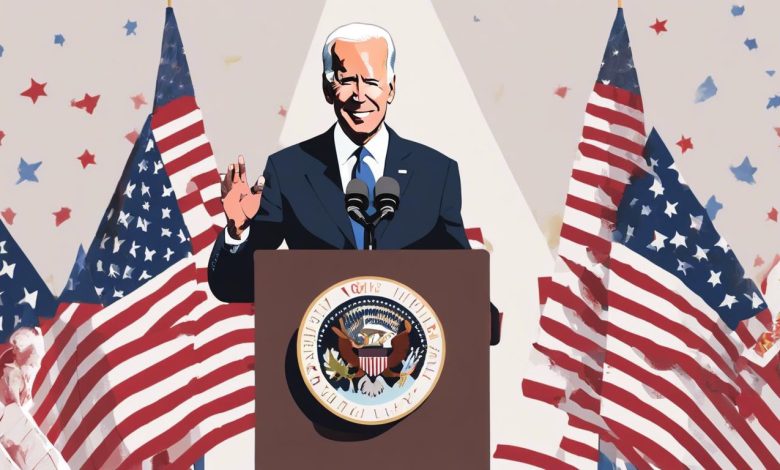Biden’s language on immigration sparks backlash, as Trump hosts Orban at Mar-a-Lago

Criticism emerges against President Joe Biden for his use of the term ‘an illegal’ during the State of the Union, amidst controversy over a dinner hosted by Donald Trump for Hungarian Prime Minister Viktor Orban. Calls for immigration reform intensify as political leaders face scrutiny.
In recent developments in the United States, President Joe Biden has come under fire for his language during the State of the Union address, where he referred to an undocumented immigrant as “an illegal.” The critique emerged after a confrontation with Rep. Marjorie Taylor Greene regarding the death of Laken Riley, attributed to a Venezuelan immigrant. The incident has sparked criticism from within Biden’s own party and from immigrants’ rights advocates, who have drawn parallels between Biden’s rhetoric and that of former President Donald Trump. Members of the Democratic Party and progressive groups have called for a shift away from policies perceived as militarizing the U.S.-Mexico border and urged for comprehensive immigration reform. The National Immigration Law Center specifically has called on the president to avoid dehumanizing language and to adopt policies that respect the dignity of immigrants.
In a related political sphere, Melania Trump, the former first lady of the United States, made a public appearance at a dinner at Mar-a-Lago in Florida, hosted by her husband Donald Trump and attended by Hungarian Prime Minister Viktor Orban. Orban, known for his controversial stances on immigration and LGBTQ+ rights and his advocacy for “illiberal democracy,” was praised by Trump as a decisive leader. This meeting, which occurred after Orban’s participation in a conservative think tank event and decision to skip President Biden’s State of the Union address, has raised discussions on the implications of a potential alliance between European and American conservative forces. The event and Melania Trump’s participation have fueled speculation regarding the future of international relations and the political directions of the involved parties.








